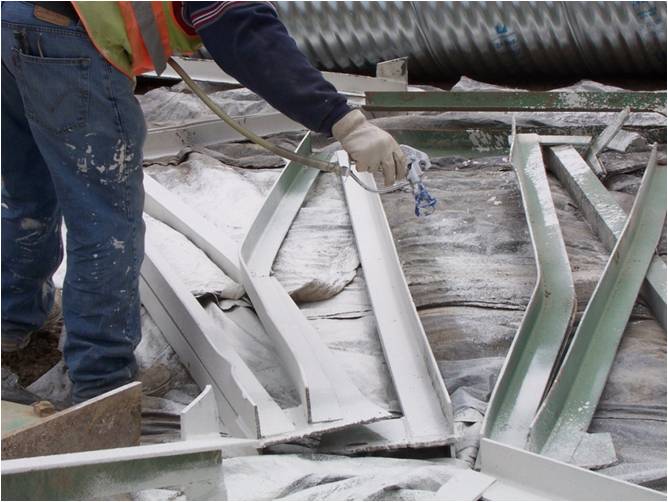 Demolishing buildings can be an environmentally damaging experience, particularly if it has serious contaminants such as lead paint where removing lead paint is critical. One of the most serious, yet least discussed, is the problem that occurs when demolishing buildings with lead paint dust. It is vital to clean, prep and treat these buildings properly before demolishing them.
Demolishing buildings can be an environmentally damaging experience, particularly if it has serious contaminants such as lead paint where removing lead paint is critical. One of the most serious, yet least discussed, is the problem that occurs when demolishing buildings with lead paint dust. It is vital to clean, prep and treat these buildings properly before demolishing them.
Lead Can Go Airborne
It might be hard for some people to imagine, but lead paint can turn into dust and go airborne. Though lead paint is no longer used in homes and buildings, a large number of structures built before the 1980s still have lead-based paint. When lead paint flakes and goes airborne, the risk of exposure and various health problems (including cognitive degradation) are possible.
This Paint Can Go Airborne During and After Demolition
While lead paint dust in a home or building is dangerous enough, what happens when that building is demolished? Demolishing a building with lead paint and dust could cause it to spread over an entire neighborhood and damage the health of an entire area
Cleaning Up Is Possible
Before demolishing a building that may have lead paint, it is important to take steps to get professional help to treat it. Start by using a HEPA vacuum to suck up all paint dust that could be lead-based. A whole cleaning crew is likely to be necessary for this procedure, as it can require wiping down all the surfaces, removing extensive portions of the building, and much more. By taking care to properly handle lead paint, you can protect your home and your neighborhood from serious lead paint dust dangers. Failure to do so could expose a whole new generation to serious mental and physical health problems that would have been easily avoided.
When Hiring Professional Lead Remediation Experts, it is Important to Understand How These Commercial and Industrial Contractors are Affected by RCRA, and its Waste Removal Regulations?
When the Resource Conservation and Recovery Act was drafted into law in 1976, business and home owners all over the country cringed at the news. They knew it meant that a new financial obligation--their buildings being stripped of old, lead-based paint—would have to be accounted for. However, business and home owners were not the only ones with concerns about the task ahead. Contractors, who would be employed to remove the paint, would risk exposure to harmful dust and debris, which could very easily be scattered into their environment while working. Even the safety of a removal specialist’s family may be at stake if job site exposure results in lead dust on the clothing. According to The Mayo Clinic, the consequences of exposure are severe. Lead poisoning can cause a wide range of symptoms, from seizures, to hearing loss, to learning disabilities in children.
Environmental contamination is also a concern where any kind of renovation or remodeling produces lead paint waste. According to EPA.gov, the poisonous by-products of renovations must be disposed of by contractors in proper facilities. Thanks to innovations in lead paint safety, paint producers have developed means to contain the hazardous material in a way that makes it “inert,” or unable to leach into its environment from paint chips or dust. New, paint-penetrating technology is used to bond lead in place so that removal and disposal are much safer, and much cleaner. While lead paint removal will be an ongoing task in commercial buildings all over the country for years to come, at least it can now be done without becoming a life-threatening responsibility.
Some types of specialty paint can also minimize airborne lead spread. In this way, you can protect yourself and your employees from serious lead poisoning potential. ECOBOND® - LEAD DEFENDER® is the nation’s leader in developing and distributing products that improve the protection of human health and safety from the hazards of lead in the home, workplace, and the environment. With over 15 years in patented and proven success, the ECOBOND® - LEAD DEFENDER® family of products have been extensively used in successfully treating lead hazards in over 11,000,000 tons of material while serving over 100,000 customers in the United States and Internationally.
To learn more visit www.EcobondPaint.com, view our lead paint treatment video
